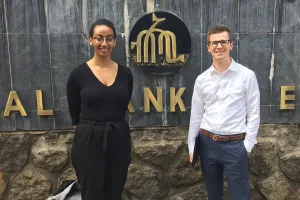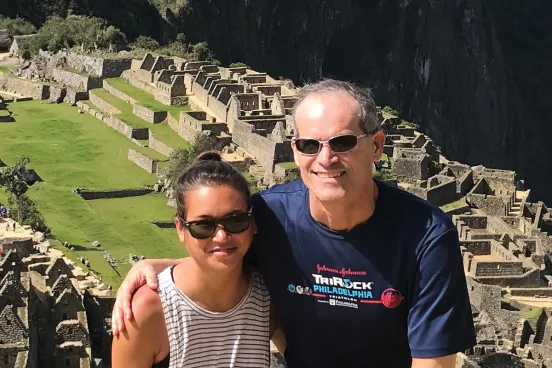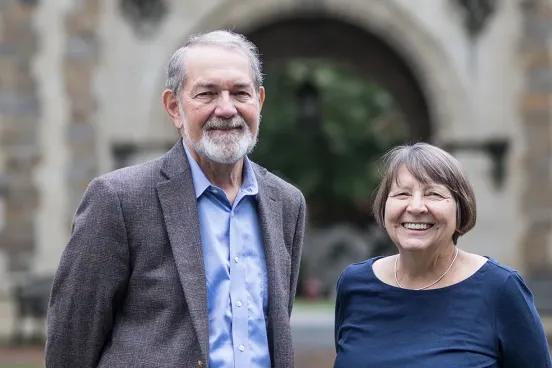
Michigan Law’s International Transactions Clinic (ITC) advises clients as far away as India, Kenya, and Haiti. While most of that advising takes place in the classroom, a rare opportunity to travel to Ethiopia last semester enabled then-2Ls Millan Bederu and Robert Shoemaker to gain in-country experience on how to structure a fund to invest in Ethiopian enterprises.
Bederu and Shoemaker, student-attorneys in the ITC, visited Addis Ababa, Ethiopia’s capital, on behalf of a U.S.-based client of Ethiopian origin who is interested in organizing a fund to invest in Ethiopian small- to medium-sized enterprises.
“Our client wants to raise money for the fund in the United States, largely from the Ethiopian diaspora community, and invest that money into enterprises in Ethiopia, which has not generally been done until now,” says ITC Director David Guenther, ’99, who accompanied the students on the trip. “That capital would enable those enterprises to operate and expand as the Ethiopian economy develops.”
Ethiopia had been a Marxist country from the fall of the last emperor, Haile Selassie, in 1974 until the early 1990s. Until recently, its state-controlled economy had been largely closed to foreign investors, Guenther notes, which means that hard currency like dollars and euros is still widely unavailable there. Reforms to Ethiopian financial regulations and capital controls, however, are expected to open up more international investment opportunities within the country.
The ITC team met with various parties in Ethiopia, including Ethiopian legal counsel, a potential fund manager, the Development Bank of Ethiopia, representatives of a private equity fund currently invested in Ethiopia, and other government agencies. The goal was to understand how their client’s fund could be structured and how the investment process in Ethiopia works.
“They gave us a handle on what the legal, financial, and regulatory landscape in Ethiopia is really like,” Shoemaker says. “We could research statutes and regulations on our end, but figuring out how the fund was going to work on the ground was something we didn’t have a direct line of sight on.”
“It oriented the way we thought about structuring the entity and doing business in Ethiopia and other jurisdictions that are important to our client,” adds Bederu, who notes that their advice included choosing a jurisdiction and legal entity for the fund and analyzing how it would be regulated in Ethiopia, along with its potential investee companies and competitors.
Bederu—who lived in Ethiopia and the United States while growing up and whose parents are native Ethiopians—wants to work in Ethiopia long-term, “so it was nice to get that exposure so early in my career,” she says. “Even though I know the country, the trip gave me a different perspective on Ethiopia.”
The trip is the first time ITC student-attorneys have traveled outside the Americas to assist a client, Guenther says. He credits Paul Clyde, a professor in U-M’s Ross School of Business and the president of U-M’s William Davidson Institute, with making the opportunity possible. Clyde has a team of business students engaged with the fund project, and he invited the ITC team to assist them on the trip.—LA







